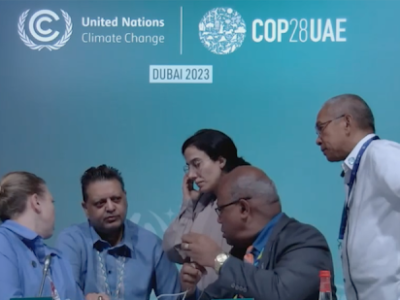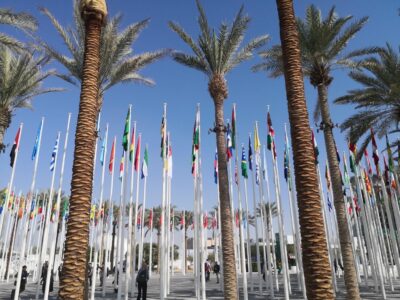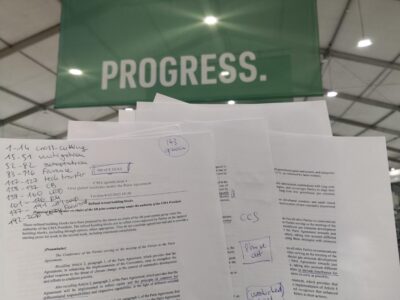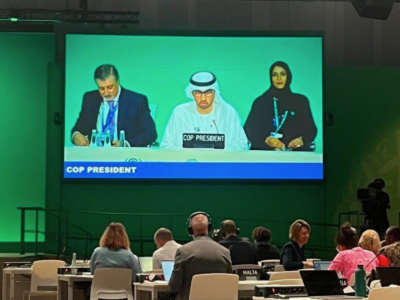LONG-TERM FINANCE: POLITICS LEADS ON TECHNICAL ASPECTS
It has always been known that climate finance was one of the most controversial and debated aspects of the negotiation process, especially... Read More
COP28: UPSETTING ARTICLE 6 AND CARBON MARKETS
The second week of COP28 began on Friday, and so did the related negotiations. Among the points still under discussion is, inevitably,... Read More
AN ENDLESS DAY ON ARTICLE 6.4 – THE COUNTRIES’ POSITIONS
On Saturday, COP28 delegates met three times to negotiate on one of the most complex issues under the Paris Agreement: the rules,... Read More
THE GLOBAL STOCKTACKE DRAFT OF 8 DECEMBER, POINT BY POINT
In the twenty-seven pages of the Global Stocktake text published on the UNFCCC website on 8 December at 3.30pm (Dubai time), much... Read More
A PLENARY THAT IS DIVIDING WEEKS, STATES AND INTENTIONS
“This COP is actually different”. This is how President Al Jaber made his debut at the plenary session which, on Friday December... Read More





